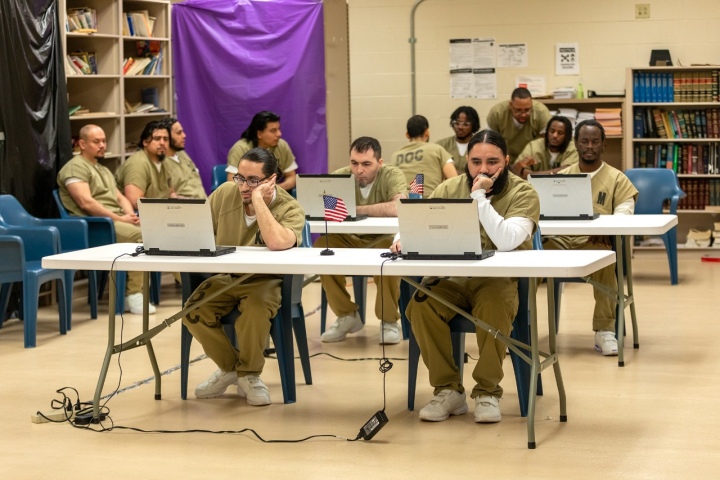
A record-breaking 118 teams from 50 countries are participating in the 3rd Intercontinental Online Chess Championship for Prisoners, which began today on October 11.
The biggest-ever chess event among correctional facilities, organized by FIDE and the Chicago Cook County Sheriff’s Office, is a part of the Chess for Freedom program and continuation of the international championship first held in 2019 and the Intercontinental Online Chess Championship for Prisoners of 2021 and 2022.
The opening ceremony took place online and featured FIDE President Arkady Dvorkovich, Cook County Sheriff Tomas J. Dart and Deputy Chair of the FIDE Management Board Dana Reizniece-Ozola.

FIDE President Arkady Dvorkovich warmly greeted the event participants: “We all make mistakes, and we have to live with the consequences. Nevertheless, we all possess the inherent right to a better life and a second chance, another chance. Your participation in this event is proof of that. Chess can help in living a better life. It teaches us skills which are relevant for a good life – such as patience, order, focus, fighting even when things are tough, and finding a solution in a difficult position. But chess is also a tool that can bring us together and can prove to be a gateway to another – better – world.”

Cook County Sheriff Thomas J. Dart, who introduced the chess program to Cook County Jail more than ten years ago, spoke about valuable life lessons chess gives to people: “Chess is a marvellous sport. It gives you so many different tools, but particularly to the individuals who are incarcerated. It gives them a sense of accomplishment, an ability to understand the need to think ahead, move by move, not just the immediate. And for us, for all these years, it has been a marvellous thing for our detainees. I want to particularly thank my staff and the staff of FIDE for all of the work that you’ve done for all of these years. It’s truly you who have made it a success. We are thrilled to have you all with us today, and we are looking forward to a very successful tournament. As always, we would prefer to win, but, at the end of the day, we want everyone to enjoy themselves and take away from this that you too can accomplish things if you put your mind to it.”
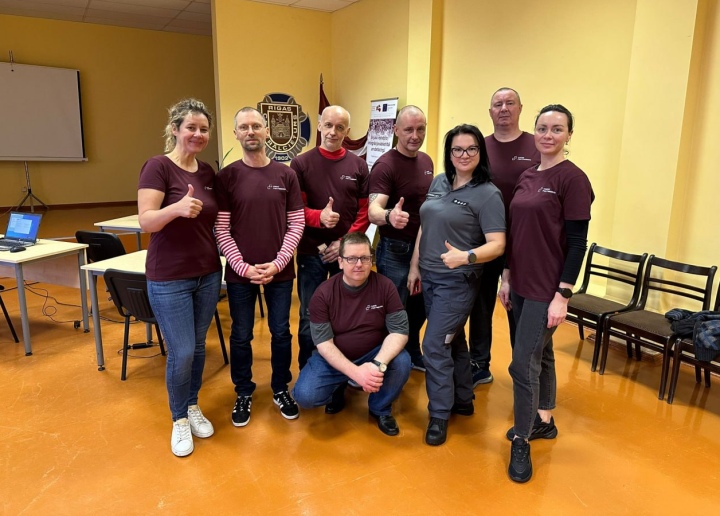
Deputy Chair of the FIDE Management Board Dana Reizniece-Ozola narrated an inspiring story of chess changing a person’s life in prison: “Today, I want to share with you the profound impact chess can have, even within the confines of four walls. Some of you may be familiar with the story of Claude Bloodgood. In 1970, he was sentenced to death for the murder, a sentence later commuted to life in prison. During his time behind bars, Bloodgood became an avid chess player, dedicating thousands of hours to the game by playing with fellow inmates, guards, and even engaging in correspondence chess. His dedication was so remarkable that he qualified for the US Chess Championship, though circumstances prevented him from participating. Nevertheless, within the prison walls, he taught chess to thousands of inmates, authored a chess book, and was often interviewed by the media. Bloodgood’s case shows us that chess is more than just a game – it is a tool for rehabilitation and personal growth, even in a seemingly incomprehensible position. Behind the walls, chess can be a source of resilience and self-improvement.”
A record number of participants is the result of consolidated efforts of organizers, officials, government officers, members of the penitentiary administrations and volunteers involved in introducing chess to inmates. They all note the positive impact of the game on prisoners.
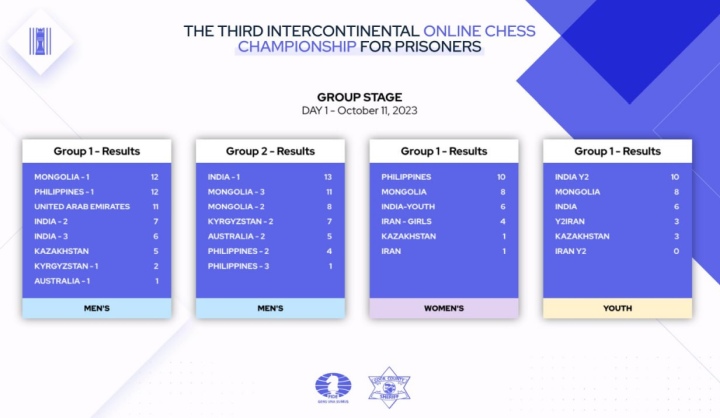
Three separate tournaments started today, with men (78 teams), women (22 teams) and young inmates (18 teams) competing at the group stage.
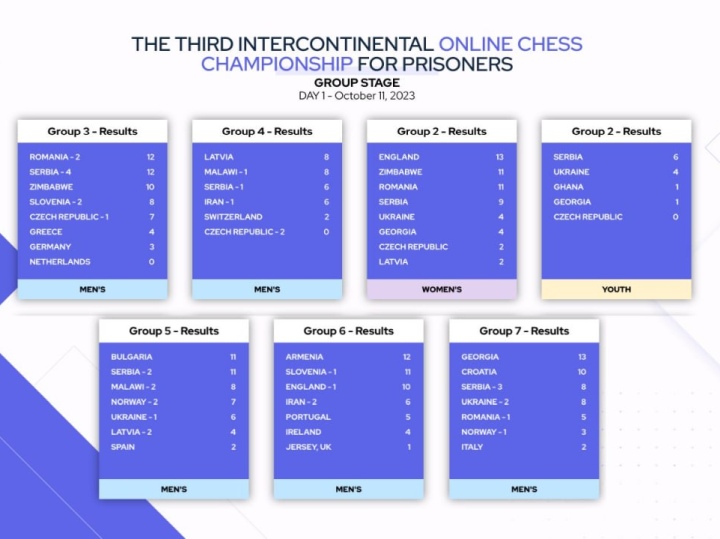
Mongolia did exceptionally well today. The country’s teams qualified for the next round in all three sections. Mongolia has been the most successful country in the history of this competition so far. Its men’s team was a winner of the inaugural event in 2021; a year later, Mongolian female inmates won the women’s section. Mongolia has a long-standing tradition of teaching chess in prisons. Since 1956, chess tournaments have been held in all correctional units of the country.
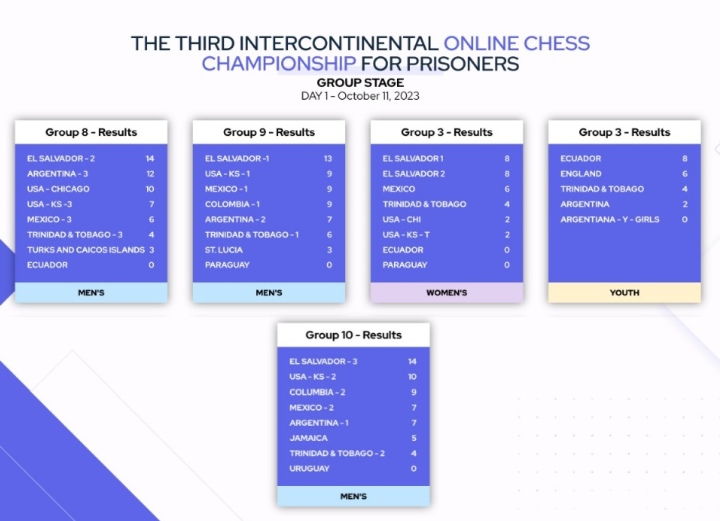
One of the pleasant surprises of the day was a strong performance by the Zimbabwe women’s team, who debuted in the championship today. Two years ago, the country’s men’s team, the only representative of the African continent in the inaugural edition of the tournament, made a splash by reaching the final and narrowly losing to Mongolia. This year, Zimbabwe added another feather to their cap as they also have a women’s team that made it to the event’s next stage.
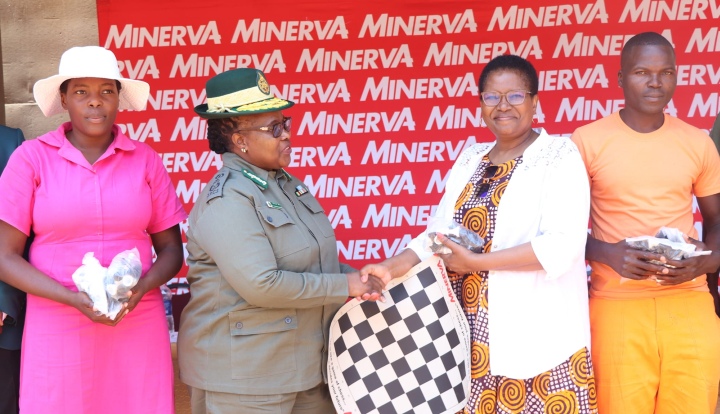
Laura Chawe, a Zimbabwe women’s team member, said she was very excited to participate in her first-ever international tournament. “I am happy with the opportunity to represent my country. I hope we will enjoy the next days of chess.”
The team of Maula prison, Malawi, also advanced to the next stage of the Intercontinental Online Chess Championship in the men’s section. Its players have been training hard and had a test tournament last week. Chess in Prison program at Maula Prison was launched just a year ago as a tool to improve the quality of life for prisoners.
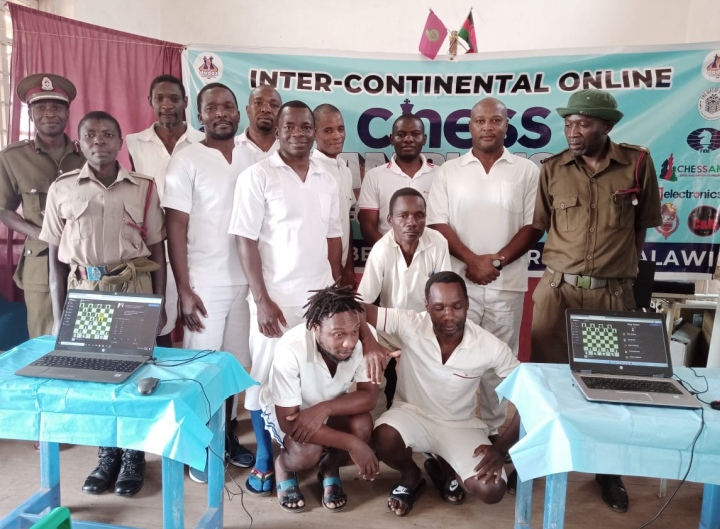
The Gift of Chess Foundation, in partnership with Dadaz Chess Academy as its country ambassador, provided the prison’s inmates with chess sets. They were also trained by Susan Namangale, founder of Dadaz Chess Academy and the Global Head of The Gift of Chess.
Alongside the tournament, the Cook County Jail, Chicago, USA, hosted a meeting with representatives of the consulates of United Kindom, Germany, Netherlands, Bulgaria, Switzerland, Mexico and Mongolia, who visited the jail to greet the participants of the championship and take part in the round table dedicated to Chess in Prisons initiatives.
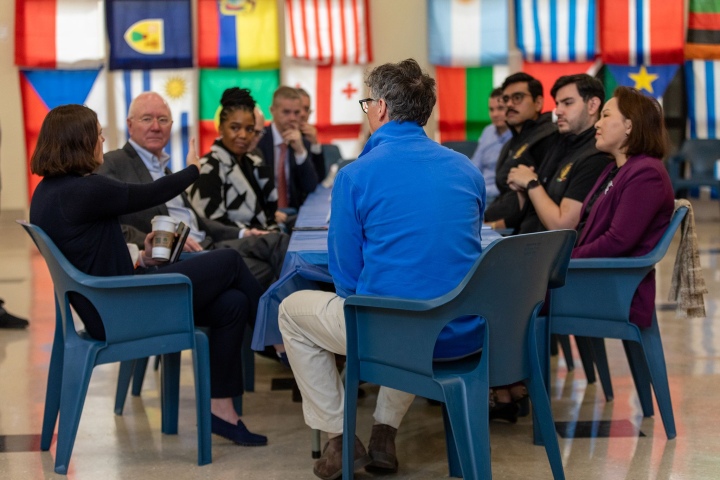
Photo: Cook County Jail
Tomorrow, 20 men teams, 6 women and 6 youth teams will continue the battle for the titles. Men will compete in two groups (10 teams in each), with the winners advancing to the final, while women and young inmates will determine the champions and top finishers in round-robin tournaments.
More info about the program can be found here: chessforfreedom.fide.com
This post was originally published on this site be sure to check out more of their content.








